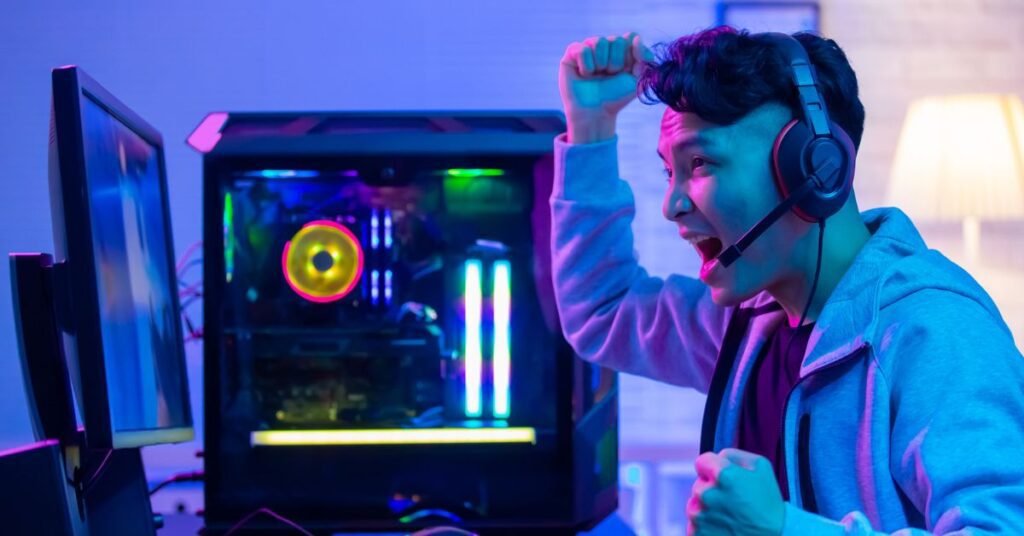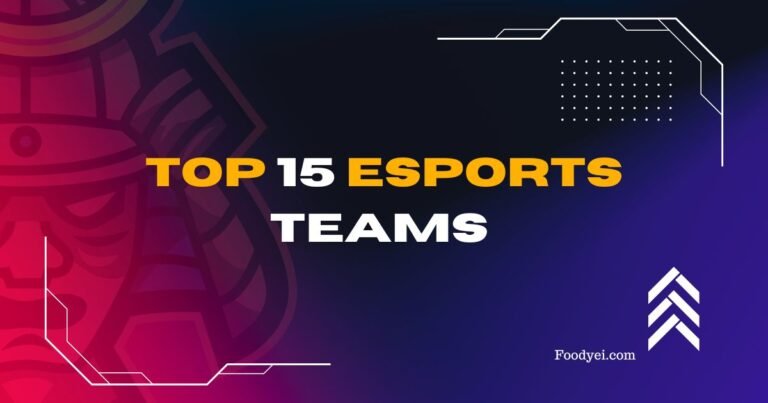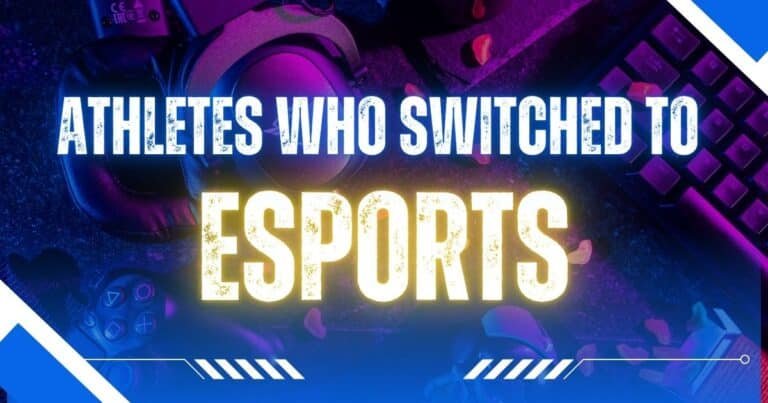Gaming is a popular hobby and form of entertainment enjoyed by millions around the world. However, even dedicated gamers can run into frustrating issues that get in the way of their enjoyment. One of the most common problems of gamers is dealing with disruptive technical problems, from game glitches and crashes to hardware issues.
Another major issue involves balancing gaming as a hobby with real-life responsibilities like work, school, and relationships. Toxic behavior in online gaming communities also causes problems for many players and can undermine the cooperative elements that make gaming rewarding.
Though not all gamers struggle with these issues, they are some of the most prevalent problems reported by players from all backgrounds and play styles. Understanding these challenges can help gamers and game developers find solutions.
10 Major Problems of Gamers
Time Management and Addiction

Time management and addiction stand as the major challenges confronting gamers today, weaving a complex tapestry that affects individuals across various gaming communities.
The allure of immersive gaming experiences often beckons players into a world where time seems to warp, blurring the boundaries between reality and virtuality. Within these stunning digital landscapes, the specter of addiction looms large, drawing players into a compulsive cycle of gameplay that can disrupt their lives and relationships.
Time management becomes important as gamers aim to balance their virtual goals and real-world responsibilities. Yet, the immersive nature of gaming, coupled with the constant stream of new content and competitive pressures, can make it challenging to maintain this equilibrium.
Toxicity and Cyberbullying
Toxicity and cyberbullying emerge as critical challenges within the gaming community, casting a dark shadow over what should be an inclusive and enjoyable environment. In the virtual realms of gaming, anonymity often encourages individuals to unleash vitriol and harassment upon their fellow players, perpetuating a culture of toxicity that can poison the entire gaming experience.
Cyberbullying, fueled by the anonymity and distance afforded by online platforms, can have devastating effects on the mental health and well-being of victims, leaving lasting scars that extend far beyond the confines of the virtual world. Moreover, toxicity and cyberbullying undermine the sense of community and camaraderie that should be inherent to gaming, driving away new players and tarnishing the reputation of gaming as a whole.
As such, addressing these issues is not only a matter of fostering a safer and more welcoming gaming environment but also a vital step toward preserving the integrity and spirit of gaming for generations to come.
Financial Challenges
Financial challenges pose significant hurdles for gamers, impacting their ability to access the full spectrum of gaming experiences and resources. From the initial investment in gaming hardware and software to ongoing expenses such as subscriptions, DLCs, and in-game purchases, the cost of gaming can quickly add up.
For many gamers, especially those from marginalized communities or low-income backgrounds, these expenses can become prohibitive, limiting their access to the latest games and cutting-edge technology. Moreover, the prevalence of monetization practices like loot boxes and microtransactions can further exacerbate financial strain, tempting players with the promise of in-game rewards at the expense of their wallets.
As a result, financial challenges not only impede gamers’ ability to fully engage with their favorite pastime but also contribute to feelings of exclusion and inequality within the gaming community. Addressing these issues requires a concerted effort to promote affordability and accessibility in gaming, ensuring that all players can enjoy a diverse array of gaming experiences.
Accessibility and Representation

Accessibility and representation stand out as significant challenges within the gaming community, shaping the experiences of players worldwide. Many gamers face barriers to access due to disabilities, whether it be physical, auditory, visual, or cognitive.
Without satisfactory accommodations, these individuals may struggle to fully participate in and enjoy gaming. Furthermore, the lack of diversity and representation in games can lead to feelings of alienation among marginalized communities.
When gamers do not see themselves reflected in the characters and stories presented in games, it reduces their sense of belonging and can memorialize harmful stereotypes. By prioritizing accessibility and representation, the gaming industry can create a more inclusive environment where all players feel valued and empowered to participate fully in the gaming community.
Physical and Mental Health Concerns
The physical and mental health concerns of gamers are critical, impacting individuals across the gaming community. Prolonged gaming sessions can lead to issues such as eye strain, repetitive strain injuries, and poor posture, affecting gamers’ physical well-being.
Also, the immersive nature of gaming can take a toll on mental health, contributing to feelings of stress, anxiety, and depression. Gamers may also struggle with addiction, spending excessive amounts of time gaming at the expense of other activities and relationships.
Addressing these concerns requires promoting healthy gaming habits, taking regular breaks, and seeking support when needed. By prioritizing the well-being of gamers, we can create a gaming environment that fosters both physical and mental health, ensuring that players can enjoy their favorite pastime while maintaining a balanced and fulfilling lifestyle.
Glitches and Technical Issues
Glitches and technical issues pose significant challenges for gamers, disrupting the immersive experience and causing frustration. From game-breaking bugs to connectivity issues in online multiplayer games, these technical hiccups can detract from the enjoyment and flow of gameplay.
When players encounter glitches, crashes, or lag, it not only interrupts their gaming sessions but also undermines their confidence in the quality of the game. Similarly, technical issues can impact the competitive integrity of esports events and online tournaments, leading to unfair outcomes and disgruntled players.
Managing these problems requires developers to prioritize strict testing and quality assurance measures to ensure that games launch smoothly and function as intended. By minimizing glitches and technical issues, we can enhance the gaming experience for all players, allowing them to fully immerse themselves in the virtual worlds they love without interruption or frustration.
Paywalls and Microtransactions

Paywalls and microtransactions present significant challenges for gamers, often creating barriers to accessing content and disrupting the gaming experience. Paywalls restrict players from accessing certain features or content within a game unless they pay additional fees, effectively fragmenting the player base and limiting opportunities for enjoyment.
Microtransactions, on the other hand, allow players to purchase in-game items, currency, or upgrades using real money, providing a shortcut to progress but potentially creating an uneven playing field for those unwilling or unable to spend extra. This monetization strategy can foster a sense of frustration and resentment among players who feel pressured to spend money to remain competitive or enjoy the full extent of the game.
Moreover, the increase in microtransactions can lead to a pay-to-win culture that prioritizes financial investment over skill and dedication, undermining the integrity of the gaming experience. By addressing these issues and promoting fairer monetization models, the gaming industry can ensure that players can enjoy their favorite games without feeling exploited or disadvantaged.
Spoiling and Leaks
Spoiling and leaks represent significant challenges for gamers, undermining the excitement and anticipation surrounding new game releases and storylines. When details about a game’s plot, characters, or key moments are leaked or spoiled online, it can diminish the sense of discovery and surprise that players crave.
Spoilers can rob gamers of the opportunity to experience a game’s narrative twists and turns firsthand, detracting from the overall enjoyment and immersion. Furthermore, leaks can also have financial implications for game developers and publishers, as early revelations may impact pre-order sales or deter potential buyers who fear having the experience spoiled.
To combat this problem, developers and publishers must prioritize security measures to prevent leaks and work closely with their communities to promote a culture of respect for spoilers and embargo dates. By protecting the integrity of their creations and preserving the element of surprise, developers can ensure that gamers can fully immerse themselves in the gaming experience without fear of having it spoiled.
Finding Time to Play

Finding time to play is a considerable challenge for gamers in today’s fast-paced world. With busy schedules filled with work, school, and other responsibilities, carving out dedicated time for gaming can be difficult. Many gamers find themselves juggling multiple commitments, leaving little room for leisure activities.
Moreover, as the gaming industry continues to expand, the sheer volume of available games and content can feel overwhelming, making it challenging for players to prioritize their gaming time effectively. This struggle to find time to play can lead to feelings of frustration and FOMO (fear of missing out) as gamers struggle to keep up with the latest releases and maintain connections with their gaming communities.
To address this issue, gamers need to establish boundaries, prioritize self-care, and allocate time for gaming in their schedules. By making gaming a priority and finding balance amidst their various obligations, gamers can ensure that they continue to enjoy their favorite pastime without sacrificing other aspects of their lives.
Choice Overload
Choice overload is a significant challenge for gamers, attacking them with an overload of options and decisions that can feel overwhelming. With a vast collection of games available across multiple platforms, gamers are often faced with the daunting task of selecting which games to play and invest their time and money in.
This abundance of choices can lead to decision paralysis, where players struggle to decide due to the fear of making the wrong choice or missing out on better alternatives. Additionally, the sheer volume of available content can make it difficult for players to fully engage with and enjoy each game, as they may feel pressured to constantly switch between titles in search of the next best thing.
To overcome choice overload, gamers can benefit from setting clear priorities, exploring recommendations from trusted sources, and focusing on quality over quantity when selecting games to play. By taking a more intentional approach to gaming choices, players can streamline their experiences and maximize their enjoyment without feeling overwhelmed by the abundance of options available.
Conclusion:
Some of the major issues reported by gamers involve challenges managing time spent playing and risks of descending into gaming addiction. It’s very easy to lose track of time while gaming, meaning maintaining balance between virtual worlds and responsibilities in the real one can be difficult. Learning disciplined time management skills tailored to the unique immersive qualities of gaming
Being aware of symptoms like lying about use, avoiding social engagements or duties to play more, or no longer finding joy in real-world activities helps catch addiction early when it’s easier to regain control. Overall, handling the time-sucking nature of games and resisting unhealthy dependencies is critical for any gamer to avoid major problems and continue benefiting from gaming’s entertainment value without sacrificing real-life success or happiness.




